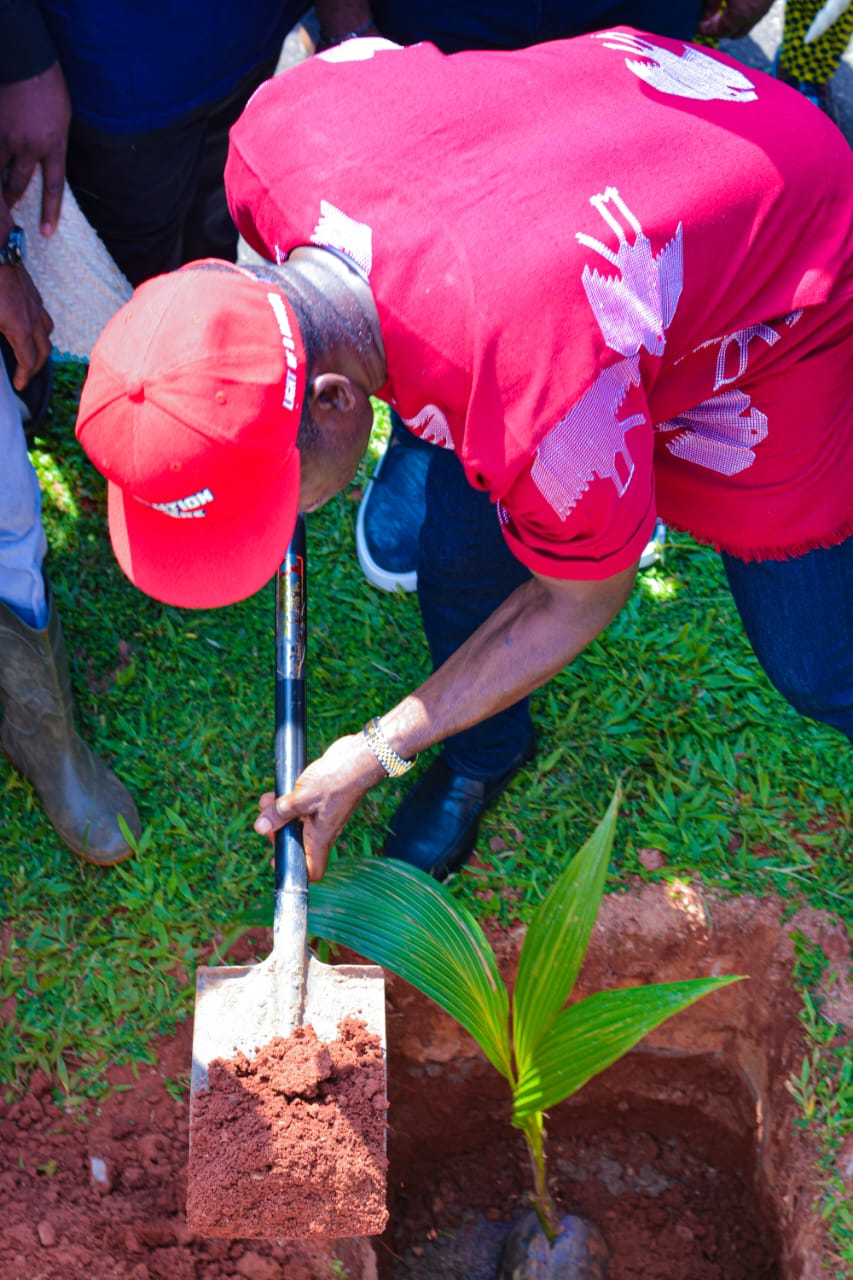By Christian Aburime
The Governor of Anambra state Professor Charles Soludo has “Operation Farm To Feed” agricultural programme in Anambra state.
Governor Soludo announced this at the weekend. He said this was done in a decisive move and as a strategic response to hunger gripping Nigeria right now.
This has come at the heels of nationwide protests over food inflation and skyrocketing prices of necessities rocking the nation.
Governor Soludo said “Operation Farm to Feed” programme offered a grassroots sustainable solution to food crisis that threatened to engulf Africa’s most populous country.
The pertinent question on the mind of Governor Soludo seems to be: how can a nation, a people, so enviably blessed with fertile, arable land mass and clement weather conditions be struggling with hunger? This has spurred the Governor to swing into action with his new initiative, set to be unveiled on Saturday at AMANSEA.
The Governor disclosed that this was in order to galvanize Anambra citizens into embracing agriculture on personal and family levels.
From sprawling rural homesteads to the modest backyards of urban dwellers, Governor Soludo envisioned a state where every available plot of land becomes a bastion of food security.
Of course, Nigerians can not afford to be waiting for Manna from heaven or from Abuja. As much as the government must take certain steps to address the rampant food inflation in the country, it is Governor Soludo’s belief that the long-term solution to our food crisis lies in the rich soil beneath our feet and the strength of our own hands.
The timing of Governor Soludo’s initiative could not be more critical. As galloping inflation ravages the Nigerian economy, food prices have become the most visible and painful indicators of the nation’s economic challenges.
Individuals and families across the country are grappling with impossible choices, forced to decide between putting food on the table and meeting other basic needs. There is, indeed, no easy choice.
But Governor Soludo’s plan is refreshingly pragmatic. The state government will be advocating planting of cassava stems, maize seeds, short-duration crop seedlings, and so on, to help even novice gardeners turn the patches of earth in their backyards into productive micro-farms The focus is on fast-growing, nutrient-rich crops that can provide quick relief to struggling families.
This is not about creating commercial farms overnight, but it is about empowering our people to take control of their food supply, one household at a time.
Some critics may dismiss the initiative as a mere band-aid on a gaping wound, but those involved in its implementation can argue that it represents a fundamental shift in thinking. Meaning, the Anambra State government is not abdicating its responsibilities to citizens, but is simply rewiring people’s mindsets to start contributing to solutions by growing what to eat.
In essence, let us all in Anambra and Nigeria start to choose to till the soil of self-reliance.
The “Operation Farm to Feed” programme also addresses a deeper, more insidious problem: the growing disconnect between Nigerians and their agricultural heritage. In a nation that was once the breadbasket of West Africa, urbanization and the allure of white-collar jobs have led to a dangerous dependence on imported and processed food. Our grandparents knew the value of the land, and it’s time we remembered their wisdom and went back to the land.
As the first seeds of Governor Soludo’s vision take root in Anambra’s soil, the rest of Nigeria may be watching with a mixture of hope and scepticism. Can a return to basic farming principles really make a dent in a crisis of this magnitude? Only time will tell. But in a nation hungry for solutions, Anambra’s “Operation Farm to Feed” initiative offers a ray of hope – and perhaps a blueprint for other states to follow.
We may not be able to change the whole country overnight, but we can certainly change our little corner of it, one garden at a time. And the harvest, when it comes, may well be bountiful beyond measure.




